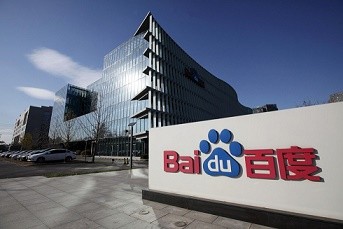Chinese search giant Baidu Inc. are looking for details to know if its expansion into food delivery, movie ticketing and other services has helped the company adapt to the challenges posed by consumers’ shift to mobile devices, the Wall Street Journal reported.
According to the report, Baidu's operator has spent heavily on promoting its offline, location-based services linked to its search and map businesses, which it believes will drive future growth, as an increasing number of consumers get online through their smartphones, and could make up for less income from mobile advertising.
The report, however, said that such spending has affected Baidu's profit margins in recent quarters, which could continue as Baidu announced in late June that it would invest 20 billion yuan ($3.2 billion) into expanding its group-buying platform, Nuomi, over the next three years.
Baidu, on the other hand, said that the heavy expenses are necessary to gain an advantage over the competition in the realm of connecting online users with offline services.
Baidu is a relative latecomer in the sector, in comparison with rivals which are supported by big Internet companies such as e-commerce company Alibaba Group Holding Ltd. and social networking and games firm Tencent Holdings Ltd.
"Going from connecting people with information to connecting people with services is a major transition," Baidu Chief Executive Robin Li said during the company's announcement on the Nuomi investment. "Such a transition requires determination, and it comes with costs."
Baidu has predicted to earn about $2.6 billion to $2.7 billion in the second quarter, about 36 percent to 40 percent higher than the same period last year. Analysts are expecting a revenue increase of 38 percent and net profit to rise about 8.9 percent from a year ago, based on a survey by S&P Capital IQ.
The report added that investors want more details on the company's aggressive spending.
Muzhi Li, an analyst at Arete Research in Hong Kong, said that some investors were wondering why Baidu would invest in food delivery.
"Investors worry about where this investment has been spent, how they're going to spend it and what's the future gain or the monetization mode," Muzhi Li said.
European investors have reportedly raised similar questions over Baidu's involvement in food-delivery services during meetings with Baidu's management in June.
During the meeting, Baidu reportedly told Deutsche Bank analysts that its mapping and other data helped the company provide a better user experience and timely delivery service.
Baidu Wallet, the company's payment tool, has only 26 million connected bank accounts, compared with more than 100 million accounts linked with Tencent's two smartphone messaging apps, while Alipay, the online payments tool operated by Alibaba's financial affiliate, has more than 400 million annual active users.
Tian Hou, founder of research firm T.H. Capital LLC, pointed out that Baidu's main advantage is its resources.
"If we talk about cash, Baidu has a cash cow. If you look at their map, it can pretty much cover everything," Hou said. "They are latecomers but they have superior resources."



























